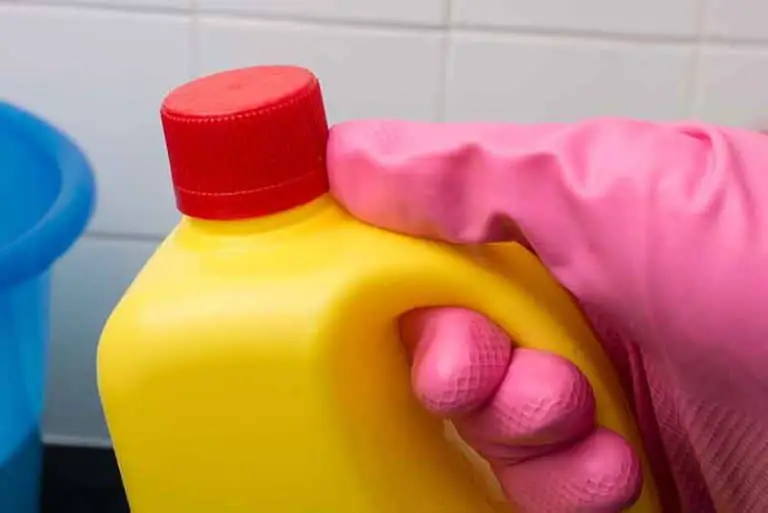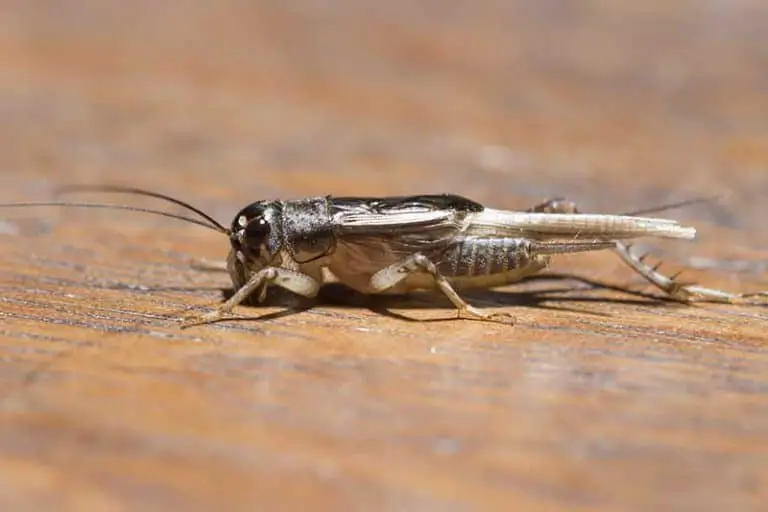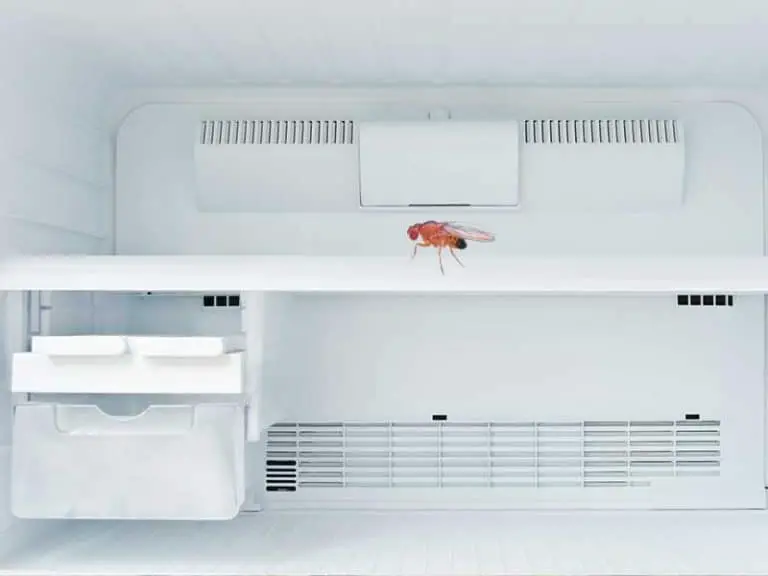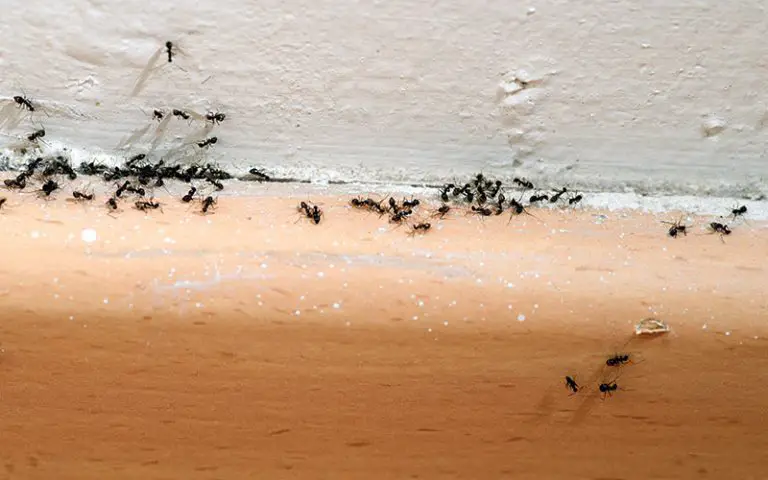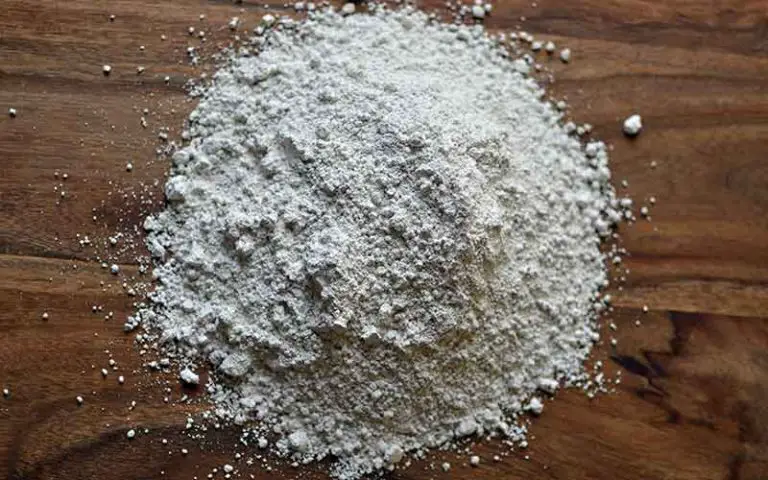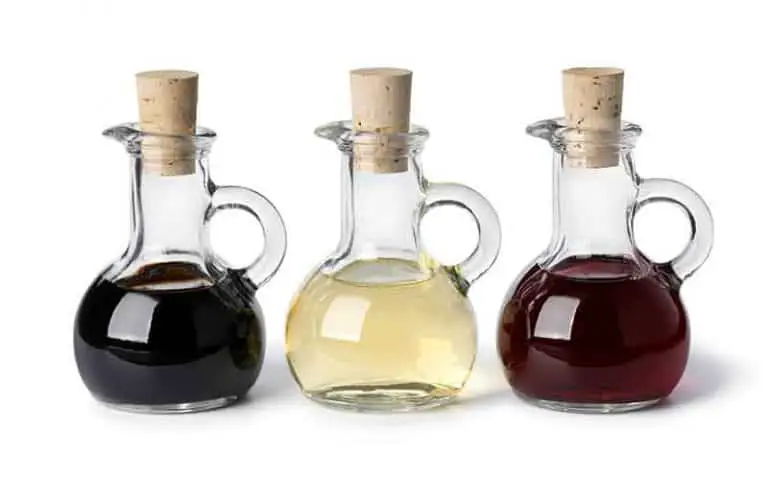Ants on Food: What Happens If You Eat Ants?
It can sound quite off-putting whenever you think about eating ants, especially if they get into your food unknowingly. But what happens if you eat ants? Will you fall sick?
Eating ants is actually not a huge problem. In fact, there are several parts of the world in which people consume ants without facing much of an issue.
So, even if it sounds unappetizing to you in particular, you are likely to be safe if you accidentally end up eating ants. However, there are several things that you must keep in mind here to ensure that the ants you ate were harmless.
To find out more about this, you can read through the following sections where we will elaborate on the issue of eating ants, which species you should look out for, potential diseases and risks involved as well as how you can keep your food safe from ants.
Which Species of Ants Are Safe to Eat?
An important consideration that you should be aware of when it comes to eating ants is the species that you end up consuming. This is because you cannot eat all kinds of ants as some of them are more harmful than others.
Which species can you eat without experiencing any consequences?
Most commonly, the species present around us are sugar ants or banded sugar ants (Camponotus cansobrinus) that get attracted to sweet and sugary foods. These are most likely to contaminate your food.
They are also common pests that you might notice around your house. Luckily, these sugar ants do not sting and are, therefore, quite harmless. Even if you end up eating them, they will not create any issues when it comes to your gastrointestinal system unless you have allergies to them.
However, the larger ants of this species can end up biting you while also causing a bit of damage to your skin, so make sure that you can figure out the kind of ants that you have eaten.
Some other edible ant species include honey ants, leaf-cutting ants, and weaver ants, among others.
There are also several other species of ants that include fire ants and carpenter ants that can cause you harm if you accidentally end up eating them if they are present in your food. They can bite and can lead to pain and inflammation.
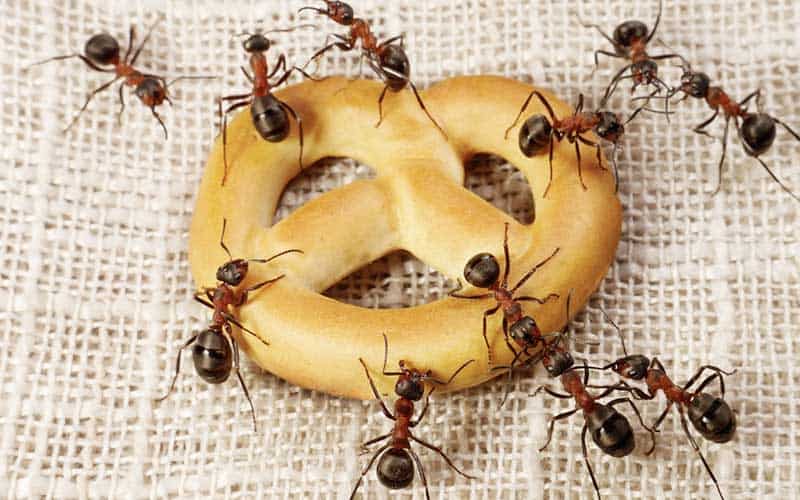
How Safe Is It to Eat Ants?
If you find that some sugar ants get on your food and you end up eating that food, you do not need to worry too much as you will most likely be safe as long as you do not have any allergies.
Further, if you end up eating only a small number of ants present on your food, then this will be quite safe as well. With more whole or live ants, however, there can be a greater risk of germs and bacteria making their way into your body.
Apart from that, however, there are certain benefits associated with eating edible ants that might make you feel slightly better even if you have eaten them accidentally.
For instance, ants contain a good amount of protein, are quite sustainable to consume, contain antioxidants that can help improve your health, and are also quite sterile.
Further, if you want to intentionally try eating ants on your food, it is essential to ensure that you source them from a reliable place and that the product follows the necessary processing and hygiene standards to prevent getting too sick.
Diseases Ants Can Carry
There are several diseases that ants might carry and pass on to you through bacteria and fungi. While it might not always be something to worry about, it is still something that you must be aware of in case you eat ants.
You should note that the ants themselves are unlikely to inherently carry toxins, but it is entirely possible for them to pick them up based on where they have been.
You can take a look at some common germs and bacteria that ants can potentially carry with them.
- Salmonella and E. coli: Ants can sometimes carry these bacteria through garbage or other waste forms of food. They can also end up transmitting these bacteria to your food at a high frequency and, as a result, to yourself.
- Streptococcus and Clostridium: These bacteria might commonly be present in excrement that ants might pick up and transmit to food and then to you.
- Other Coliform Bacteria: Ants also carry coliforms frequently which can point to the presence of other harmful bacteria along with fecal toxins.
- Yeasts and Molds: Ants can carry several pathogenic yeasts and molds that can then produce several toxins, leading to an adverse impact on your health.
In case you do end up eating ants, do not panic. Not every ant might carry these germs and pathogens, but it is still better to be safe to prevent the risk of diseases. You can also wait for a couple of days and visit the doctor in case certain symptoms show up and persist.
Potential Risks
In case you do end up eating ants with disease-carrying germs and bacteria, then you can look out for some of the following risks to your health.
- You might end up developing an allergic reaction if the ants happen to be carrying an allergen that generally affects you. You should then look out for some of the usual symptoms of allergies, such as sneezing, itchiness, swelling, rashes, and more.
- Germs and bacteria might also affect your digestive system, leading to stomach aches, diarrhea, nausea, vomiting, burning sensations, and more. These symptoms should ideally subside in a couple of days.
- It is entirely possible that the ants themselves might not carry or transmit any diseases, but your own mind and body might cause a reaction that can lead to some psychosomatic symptoms or disorders. This can also end up causing a general fear of eating or coming into contact with ants.
- Sometimes, ants might end up stinging or biting you while passing through your digestive tract, especially if they are venomous ants. These can then lead to inflammation, pain, itchiness, and vomiting. You should visit the doctor in case you eat these kinds of ants.
- Even without the chance of eating them, they might still end up biting your skin, which can also lead to the poison entering your body.
- It is possible that the symptoms mentioned in the previous point might even lead to chronic and/or fatal risks that might interfere with your regular functioning. This risk does not present itself with sugar ants.
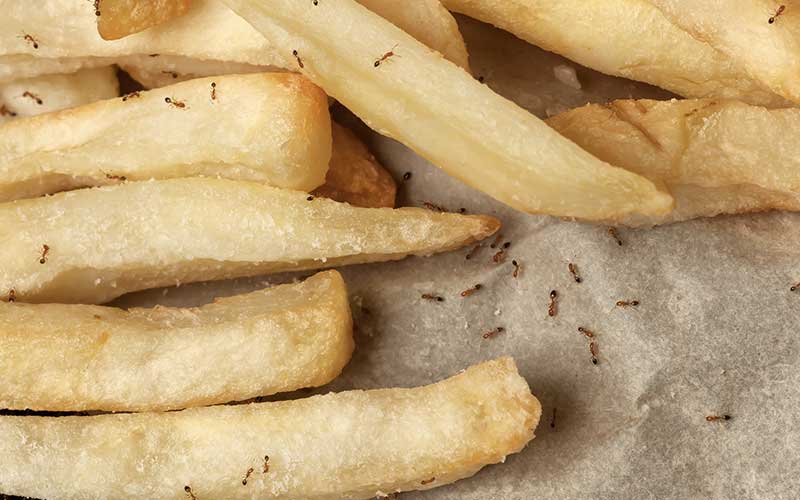
How to Keep Food Safe from Ants
If you are worried or even disturbed about eating ants, there are several measures that you can take to prevent ants from contaminating your food. You can look into some of these measures in further detail below.
- Make sure you always keep the food sealed or covered so that ants cannot make their way onto the food. Uncovered food is an easy and quick target for ants to gather around.
- It is important to ensure that you do not spill your food or drinks too often as this will surely attract the ants to the spills. This might then also allow the ants to seek out other food present in the kitchen.
- In case spills do occur, you should clean them up immediately and thoroughly so that the ants do not have a chance of finding the spills.
- Ensure that you always prevent too much moisture from gathering around your food as humid and moist conditions can easily attract ants towards them, causing them to get onto your food and transmit germs and bacteria.
- You should also make it a point to regularly check the food before you go ahead and eat it. In case you find that there are too many ants, you can simply get rid of the food or the ingredient to prevent dealing with it. With fewer ants, you can simply get rid of them and transfer them to another sealed container.
- If you have food waste, do not leave it out into the open as this is a sure way to attract and spread ants. Even if you throw it into your garbage can, make sure you cover it up at all times and throw it out regularly to avoid issues.
Final Thoughts
It is now clear that eating some kinds of common ant species like sugar ants is quite safe and harmless. Many people across the world also eat these and other edible ant species deliberately as a cultural practice as well as to gain some health benefits that we have already discussed.
However, there is still a risk of living ants carrying some bacteria that can harm your health even though this is rare. Accidentally eating ants present on your food might not harm you too much unless you are allergic to them.
If you notice any serious reactions, you should visit your doctor. Make sure you keep your food safe as well.

